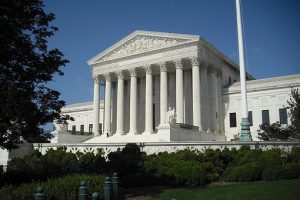New Jersey Civil Service Appeal Process Effective, Appellate Division Opinion Shows
New Jersey Civil Service Law provides an effective appeals process for employees to use when challenging discipline imposed by their employers. This was recently illustrated in the case of In the Matter of Sherman Abrams, Northern State Prison, Department of Corrections.
Background: The Abrams Case
Sherman Abrams was, and apparently still is, an operating engineer working for the New Jersey Department of Corrections (DOC) at Northern State Prison. He did not report to work on October 31, November 1, and November 2, 2017. He received a Preliminary Notice of Disciplinary Action (a “PNDA,” a Civil Service Commission Form 31-A) for excessive absenteeism and unauthorized absences. The DOC thereafter issued a Final Notice of Disciplinary Action (a “FNDA,” a Civil Service Commission Form 31-B) terminating his employment.
Abrams appealed to the New Jersey Civil Service Commission. The Civil Service Commission transferred the case to the New Jersey Office of Administrative Law (“OAL”) as a contested case. An administrative law judge (ALJ) held a hearing. Abrams testified that he took off because his father was sick but that he called in to his supervisor who said he would “take care of it,” but the supervisor testified that he did not. The supervisor testified that employees are required to have advance approval before taking vacation or personal time, and that if they are sick they need to call into the prison’s central control room, not to their supervisors. Abrams admitted not knowing the procedure and not calling into the control room, but explained that this was because he had always called in to his supervisor in the past.
The ALJ made findings of fact, but no findings about the credibility of the witnesses. The ALJ found that Abrams had sufficient time off to cover the three days, so the absences were not excessive. The ALJ also found that because the DOC had not charged Abrams with violating DOC policy, he could not be disciplined for doing so. The DOC therefore recommended that the charges be dismissed.
The Civil Service Commission rejected the ALJ’s finding that Abrams had not violated the DOC’s policy, and therefore rejected the ALJ’s recommendation that the charges be dismissed. However, the Civil Service Commission reduced the penalty from termination to a 15 day suspension for violating the DOC’s policy. Abrams filed a motion for reconsideration with the Civil Service Commission arguing that the Commission had erred when it rejected the ALJ’s credibility findings, which it denied.
Abrams appealed to the Appellate Division of the Superior Court of New Jersey, arguing that the Commission erred both in rejecting the ALJ’s credibility findings, and for adding the charge of violation of the DOC policy which was not in either the PNDA or the FNDA.
The Appellate Division’s Opinion
While acknowledging that an employee cannot be disciplined for something he is not charged with, the Appellate Division rejected Abrams’s argument that the Civil Service Commission enlarged the charges against him. It explained:
A preliminary notice of disciplinary action must set forth the charges and statement of facts supporting the charges (specifications). Properly stated charges are a sine qua non of a valid disciplinary proceeding. `Plain notice’ is the standard to be applied when considering the adequacy of disciplinary charges filed against public employees…. These principles emanate from the concept of affording due process and fairness to proceedings which impact so significantly on an employee. It is elementary that an employee cannot legally be tried or found guilty on charges of which he has not been given plain notice by the appointing authority.
However, while the FNDA did not give the numeric citation for the regulation, it gave its noun name, which the Appellate Division held was sufficient to give Abrams proper notice of the charges against him.
However, Appellate Division explained that the Civil Service Commission did not reject the ALJ’s credibility findings because there were no credibility findings in the first place. When there are no credibility findings, an administrative agency such as the Civil Service Commission may accept, reject or modify findings of fact by an ALJ.
The Appellate Division therefore upheld both the Civil Service Commission’s decision and its denial of Abrams’s motion for reconsideration.
The Takeaway
While they will overturn administrative agency decisions when appropriate, appellate courts give wide deference to the Civil Service Commission decisions.
However, the takeaway here is that the DOC tried to terminate Abrams. Yet when he appealed the ALJ recommended reinstatement. And while the Civil Service Commission did find he violated the policy, it reduced the penalty from termination to a 15 day suspension. The Appellate Division upheld the reduction in penalty. It would be hard to argue that either the ALJ, the Civil Service Commission, or the Appellate Division didn’t give Abrams a fair day in court.
So the bottom line is that it is always worth appealing major discipline. Success is never assured, but employees can look forward to receiving a fair hearing from the New Jersey Civil Service Commission, administrative law judges, and New Jersey’s appeals courts.
Contact Us
Our New Jersey employment attorneys represent government and private sector employees in all aspects of New Jersey employment law, including civil service disciplinary appeals. Please fill out the contact form on this page or call us at (973) 890-0004 to schedule a consultation with one of our New Jersey civil service lawyers. We can help.
 New Jersey Lawyers Blog
New Jersey Lawyers Blog

